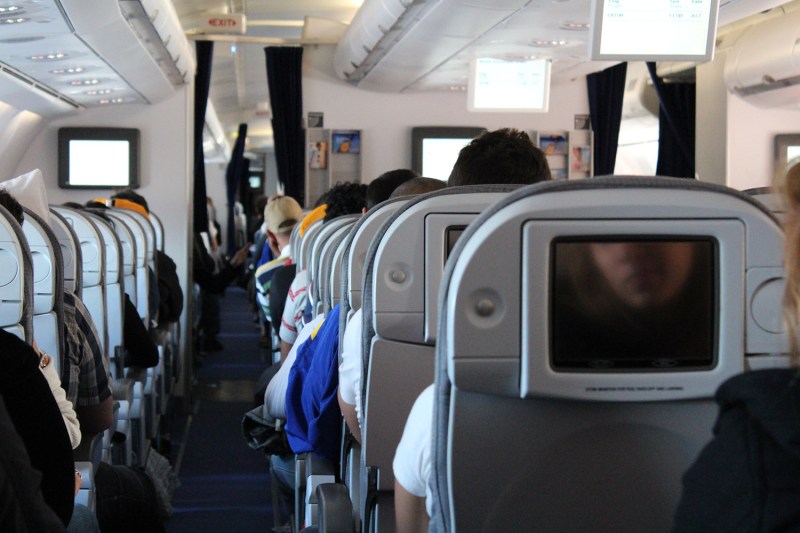
These days, it seems every tech gadget from iPhones to smart TV remotes to Amazon’s Echo is listening to our every word. Trading our privacy for a teaspoon of added convenience might seem worth it, of course — right up until the day the machines take over. Now, one of Asia’s largest airlines has confirmed that it’s actively snooping on passengers.
Last month, Hong Kong’s flagship airline Cathay Pacific quietly updated its privacy policy with a change that includes outright spying on its passengers. The airline confirmed that it uses CCTV cameras in its airport lounges and its aircraft for security purposes. It also logs in-flight entertainment system (IFE) usage to track passengers’ viewing habits. The updated policy indicates that the company freely collects the information to personalize the flying experience. It may also share data with third parties for marketing purposes. In case you’re wondering, an airline spokesperson told CNN, “There are no CCTV cameras installed in the lavatories.” So, there’s that. How comforting.
Earlier this year, numerous airlines, including American, Emirates, and Singapore Airlines confirmed the installation of cameras in their seatback IFE systems. All were quick to note that the cameras are not active and that they had no plans to use them in the future. The technology is purportedly built in to provide future enhancements like in-flight video conferencing. According to a Cathay Pacific spokesperson, the airline’s own IFEs are unable to monitor passengers’ behavior through cameras or microphones.
CCTV is widely recognized as an industry standard for securely transmitting video. Cathay Pacific claims that the images and video it collects are handled properly, but it’s impossible to guarantee security. Even Cathay’s own privacy policy confirms, “no data transmission over the Internet, a website, mobile application or via email or other message service can be guaranteed to be secure from intrusion.” What’s more, the policy boldly declares the airline will retain passengers’ personal data for as long as it deems necessary. That’s particularly unsettling in light of the massive data breach in 2018 that affected more than nine million Cathay Pacific passengers. British Airways reported a similar breach, resulting in a fine of nearly $240 million. It’s clear that whatever data security measures are in place aren’t enough.
Panasonic Avionics, the manufacturer of IFEs for many of the world’s largest airlines, has dismissed any related privacy concerns as “a bit of an overreaction.” The company’s chief technology officer went on to say that, “The case to be made for positive benefits coming from cameras is stronger than any concern that they could possibly be used for nefarious purposes.” That reassurance is cold comfort to the millions of users affected by the steady stream of data breaches — most notably Equifax and Capital One — reported in just the last two years.


